By Harriet Musinguzi & Pius Kikomeko
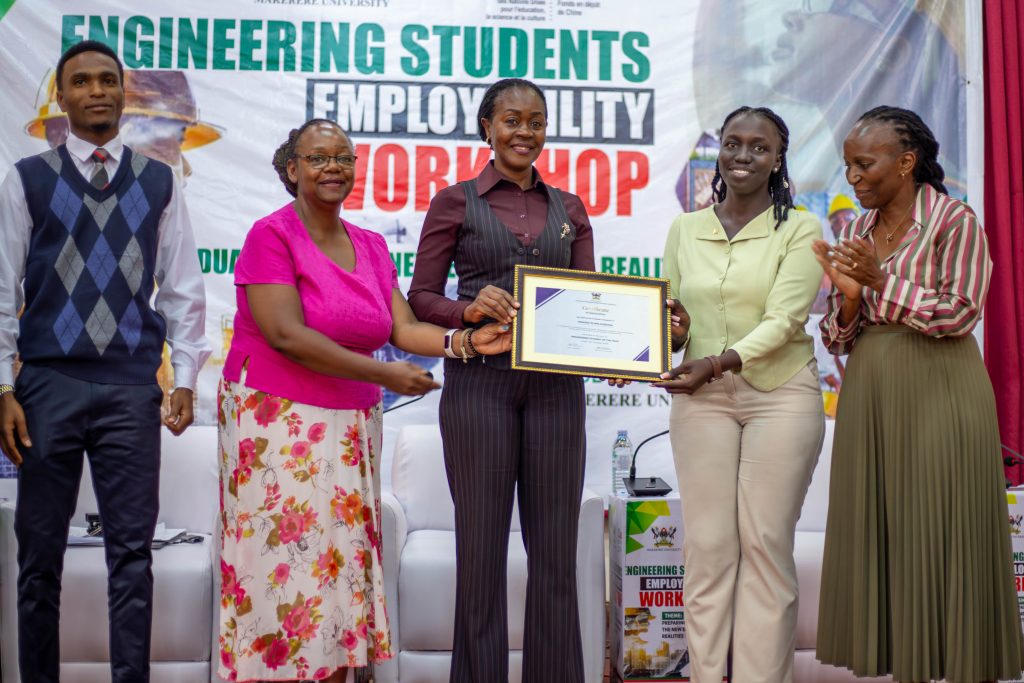
Final year engineering students converged at Makerere University’s College of Engineering, Design, Art, and Technology (CEDAT) on November 7th, 2025, for the Engineering Students Employability Workshop, a pivotal workshop aimed at enhancing student employability and preparing graduates for the evolving job market. The event, hosted by the School of Engineering under the UNESCO-CFIT III project, focused on practical strategies to bridge academic learning with career readiness.
The event also featured a special recognition ceremony honouring outstanding final-year engineering students at CEDAT. The nominees selected at the Makerere Engineering Students’ Dinner were chosen to celebrate excellence, innovation, and leadership. Amaaso Eliana was recognized as the top-performing female student, while Ayebale Magezi IsaacandNkambaEmanuelshared the award for best male students, having tied in distinction.
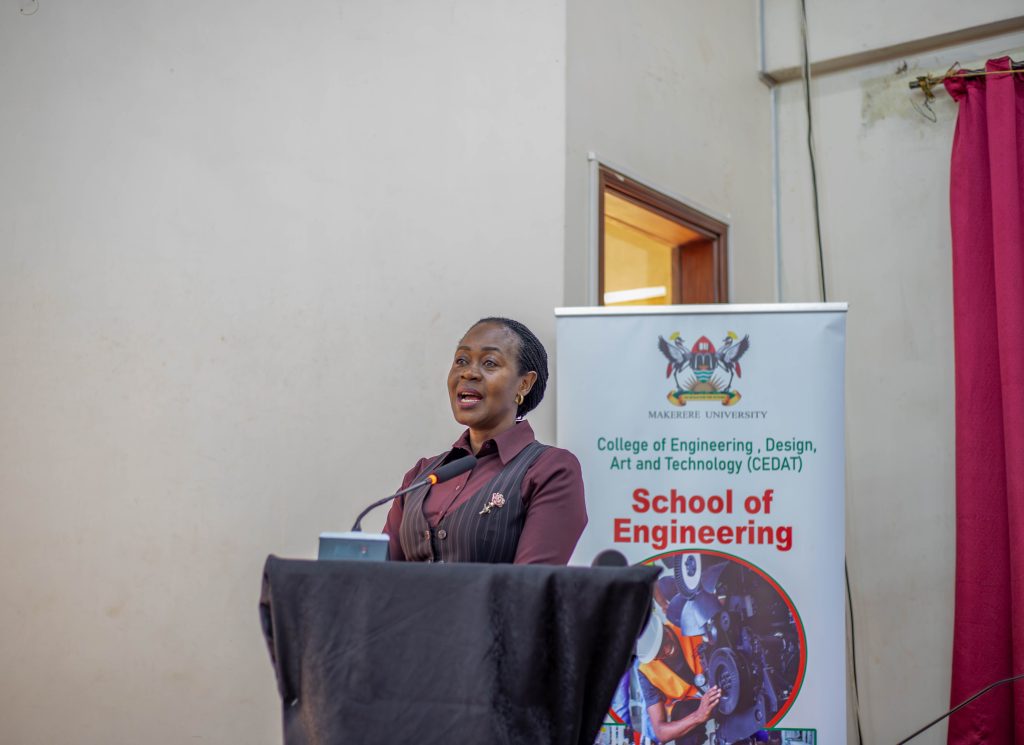
Dr. Winfred Kabumbuli, the Dean of Students at Makerere University, announced the recent approval of the university’s Career Mentorship Policy during her opening remarks at the workshop on Preparing Graduates for New Employment Realities. She described the policy as a pivotal step toward strengthening career guidance and support for students. Dr. Kabumbuli emphasized the timeliness of the workshop, noting its relevance in addressing the challenges graduates face in a rapidly evolving job market shaped by technological advancement, artificial intelligence, and globalization.
“The question is no longer what job to get, but what value you can create and how adaptable you are to change,” remarked Dr. Winfred Kabumbuli. She emphasized that while earning a degree is a significant milestone, it is attitude, curiosity, andresilience that truly shape long-term success. Dr. Kabumbuli encouraged students to embrace lifelong learning, take on unfamiliar challenges, and recognize that career paths are rarely linear, noting that many successful individuals found their way through unexpected turns. She commended alumni and industry partners for their continued mentorship and support, and reminded students that education does not end at graduation, but continues through experience, guidance, and a willingness to evolve.
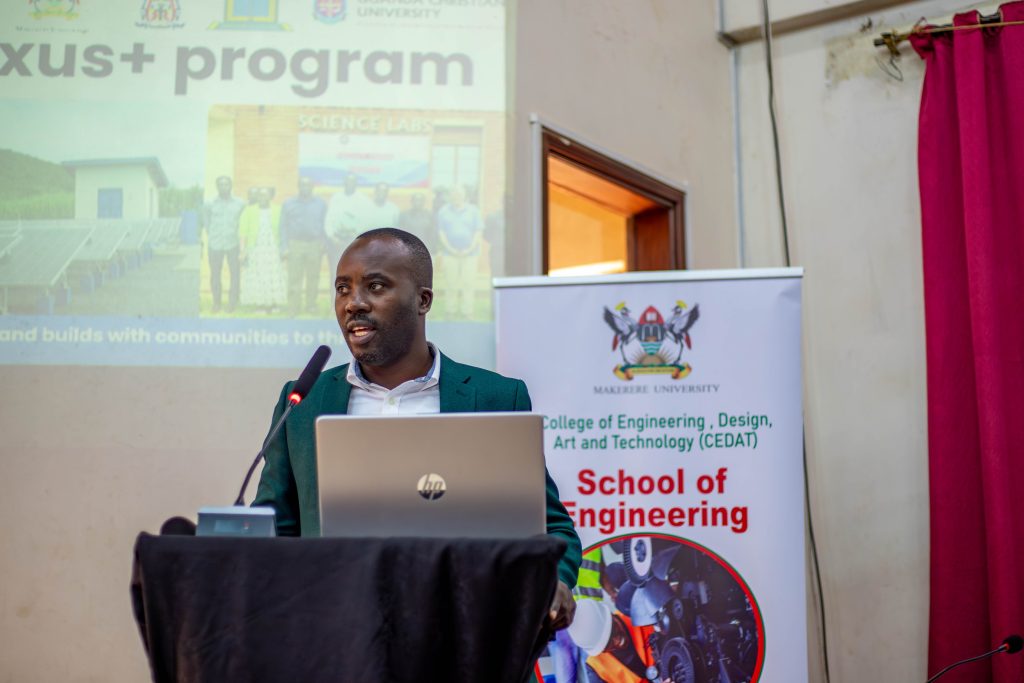
Peter Sabiiti Nzabanita, Executive Director of Engineers Without Borders East Africa (EWB-EA), as he introduced their new flagship program, the NEXUS Plus program, highlighted the organization’s mission to transform engineering education by encouraging students to learn, listen, and collaborate closely with communities. He emphasized the significance of the employability workshop, noting its alignment with their umbrella network, Engineers Without Borders, which connects students to professionals and fosters mentorship.
“We envision engineers, professionals, and communities working together for the greater good, especially in critical sectors such as water, energy, and infrastructure,” he said.
Nzabanita emphasized that as the world continues to evolve, so too must the field of engineering, adapting to emerging technologies and the growing needs of society. He explained that their program connects students with mentors and communities, creating opportunities for young people to engage in engineering with heart and purpose. By building on local knowledge, students help develop community master plans and actively participate in their implementation. This hands-on approach, he said, not only grounds innovation in real-world experience but also fosters socially responsive engineering practice.
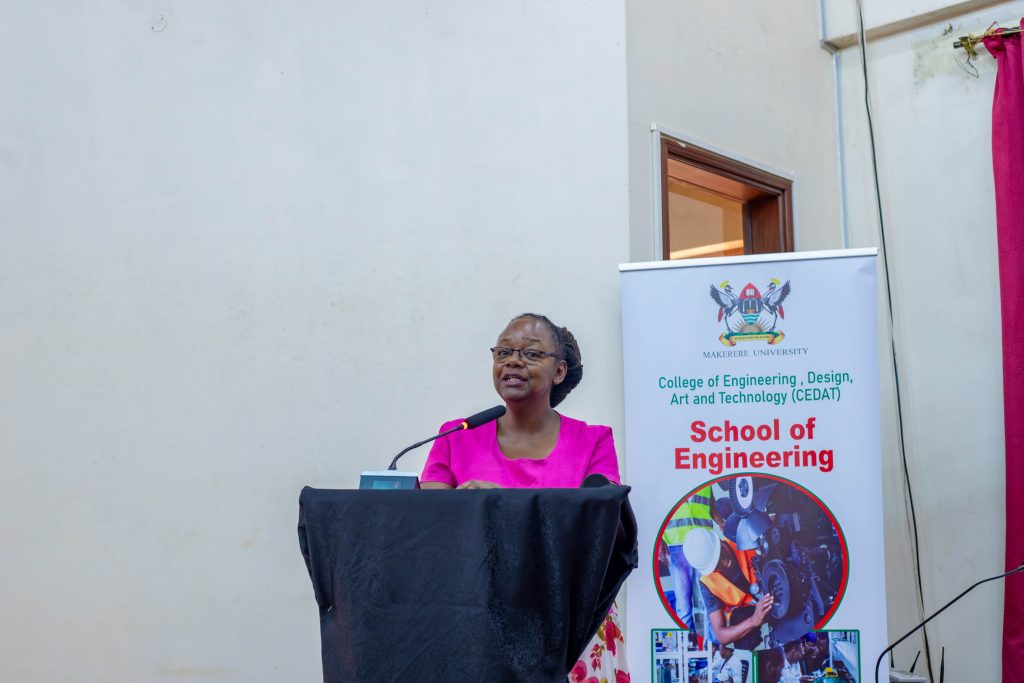
Associate Professor Dorothy Okello, Dean of the School of Engineering, announced the launch of two major initiatives aimed at enhancing student career readiness: the Engineering Students’ Employment Hub and Career Clinics. These programs, she noted, are designed to offer tailored mentorship and support, helping students confidently transition from university life into the professional world.
Reflecting on the student experience, Prof. Okello noted how swiftly time passes from enrollment to graduation. She acknowledged the personal and social factors, such as faith and relationships, that shape students’ journeys, urging them to stay focused and intentional about their future goals.
Prof. Okello also commended the leadership of fellow Deans and Heads of Departments in biomedical, software, and agricultural engineering, highlighting the importance of interdisciplinary collaboration. She expressed optimism that future initiatives could include voices from the humanities, enriching the conversation around employability with broader, more diverse perspectives.
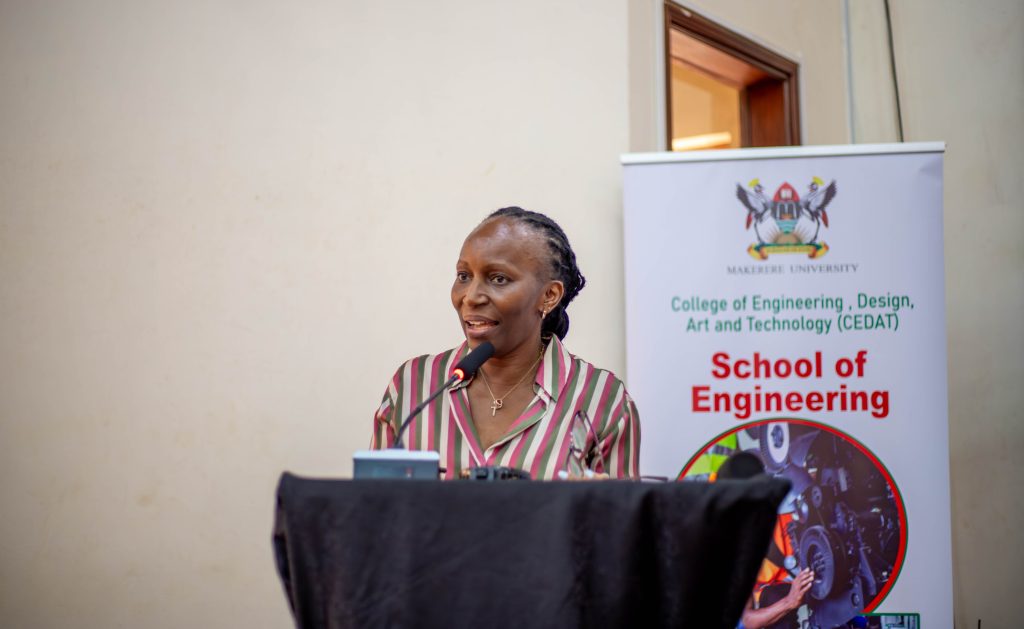
Mrs. Elizabeth Ntege, co-founder and Group CEO of NFT Consult, delivered a compelling keynote address that explored the transformative impact of artificial intelligence, sustainability, and digitalization on the future of work. She emphasized the importance of adaptability and lifelong learning as essential traits for success in today’s dynamic employment landscape.
Highlighting the urgency of digital literacy, Mrs. Ntege urged students to prioritize learning computer skills, noting that the digital world is evolving rapidly. She reminded them that career opportunities extend far beyond Uganda’s borders, with global work accessible online from anywhere.
Encouraging students to pursue their passions with diligence and the right mindset, she stressed that academic excellence alone is not enough. “Good grades won’t matter if you can’t deliver results or bring the right attitude to the workplace,” she said, reinforcing the value of professionalism and personal drive.
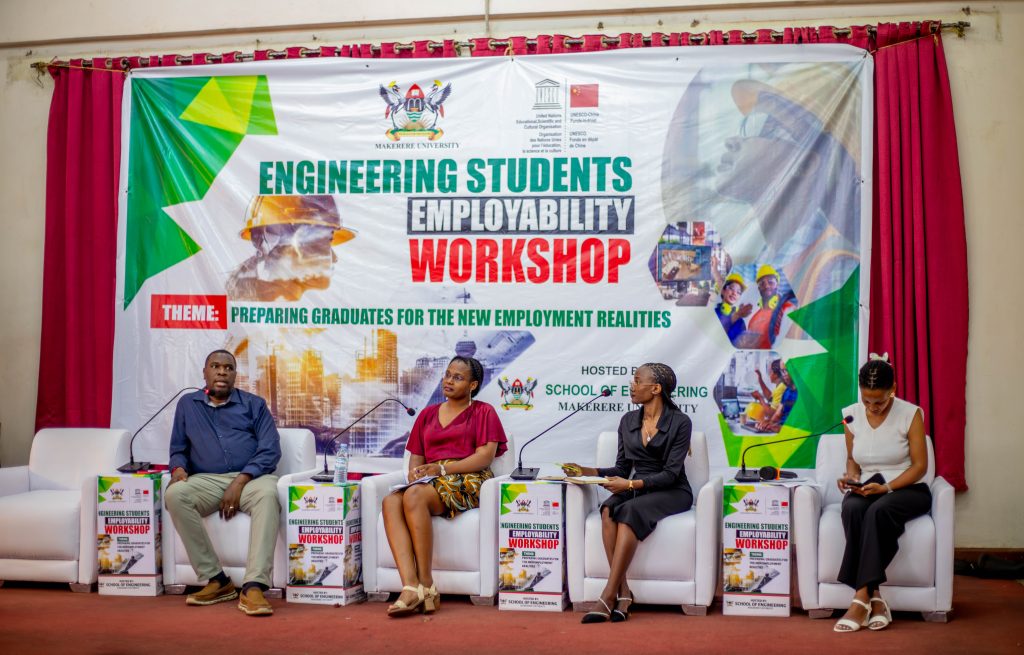
The workshop hosted two distinguished panel discussions, with the first featuring Paul Isaac Musasizi, CEO of Kira Motors; Najjuma Lydia, an experienced quantity surveyor; and Eng. Diana Keesiga, Vice President of the Uganda Institution of Professional Engineers (UIPE). Each panelist offered candid reflections on their professional journeys, from their formative student years to leadership roles in their respective fields. Their stories underscored the critical role of perseverance, adaptability, and lifelong learning in building impactful engineering careers. Through personal anecdotes and practical advice, they encouraged students to embrace challenges and remain committed to growth, both professionally and personally.

The second panel comprised a dynamic trio of professionals who have redefined what it means to be an engineer. The discussion centered on their transitions from traditional engineering roles to thriving careers in law, entertainment, and business. Each panelist shared how their engineering education equipped them with critical thinking, problem-solving, and analytical skills that proved invaluable in their new fields. Their stories offered students a powerful reminder that engineering is not just a profession but a foundation for limitless possibilities.
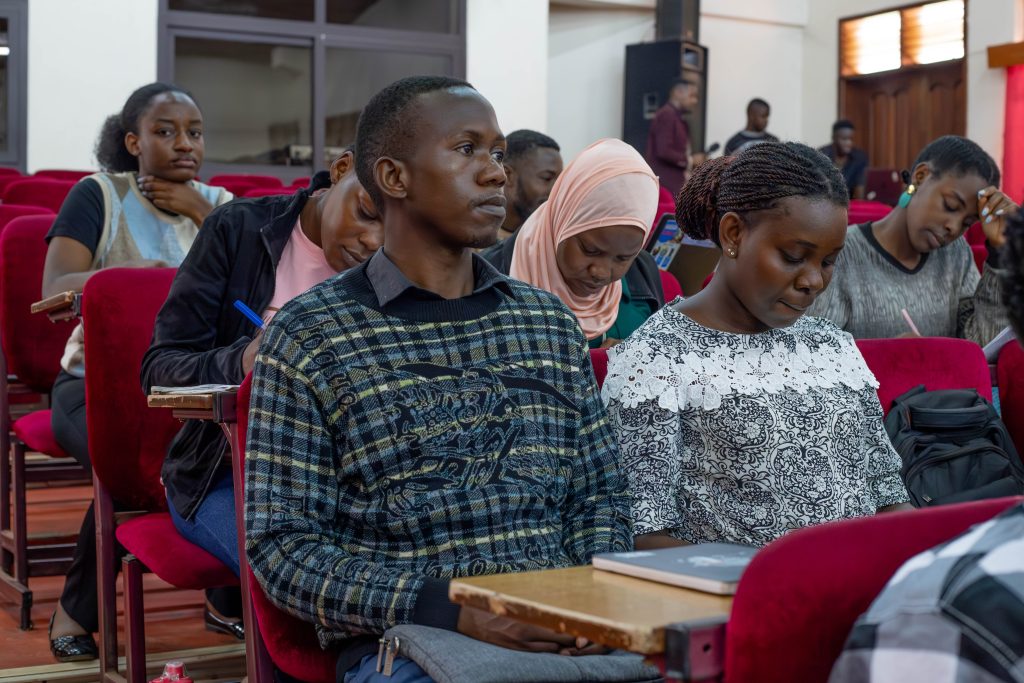
During the afternoon session, the workshop transitioned into three specialized clinic discussions, allowing students to choose the one that best aligned with their personal career development needs. They included a CV and Cover Letter Masterclass, was facilitated by Mr. Michael Musinguzi from Q-Sourcing Servtec Group, the second on focused on Digital Branding and LinkedIn Optimization, led by Dr. Donna Namujju, Clinic C, facilitated by Prof. Marco Turco from the University of New York, featured Interview Simulations and Networking Foundations, equipping students with practical skills to navigate real-world professional interactions with confidence. Each clinic delivered hands-on strategies and actionable advice to help students prepare for the evolving job market.

The workshop formed part of a broader initiative to embed employability within the engineering curriculum and strengthen collaboration between academia and industry. Students actively participated in discussions on career planning, skill development, and the evolving demands of the modern workforce.
